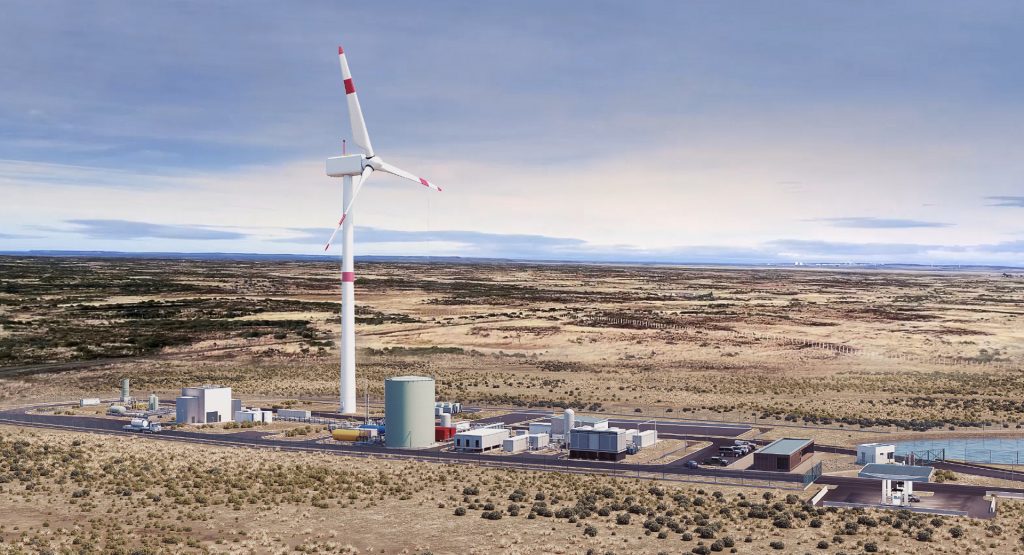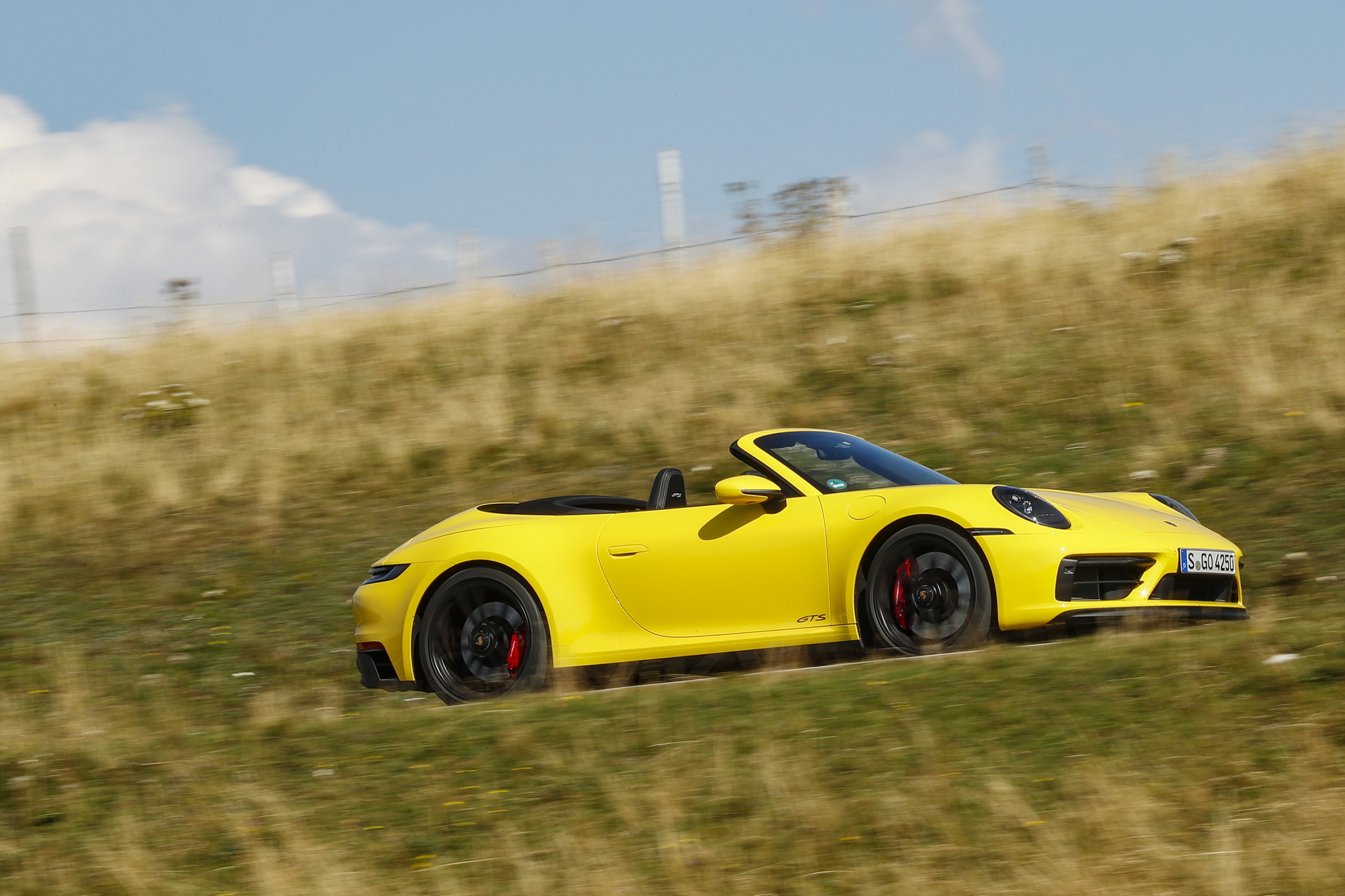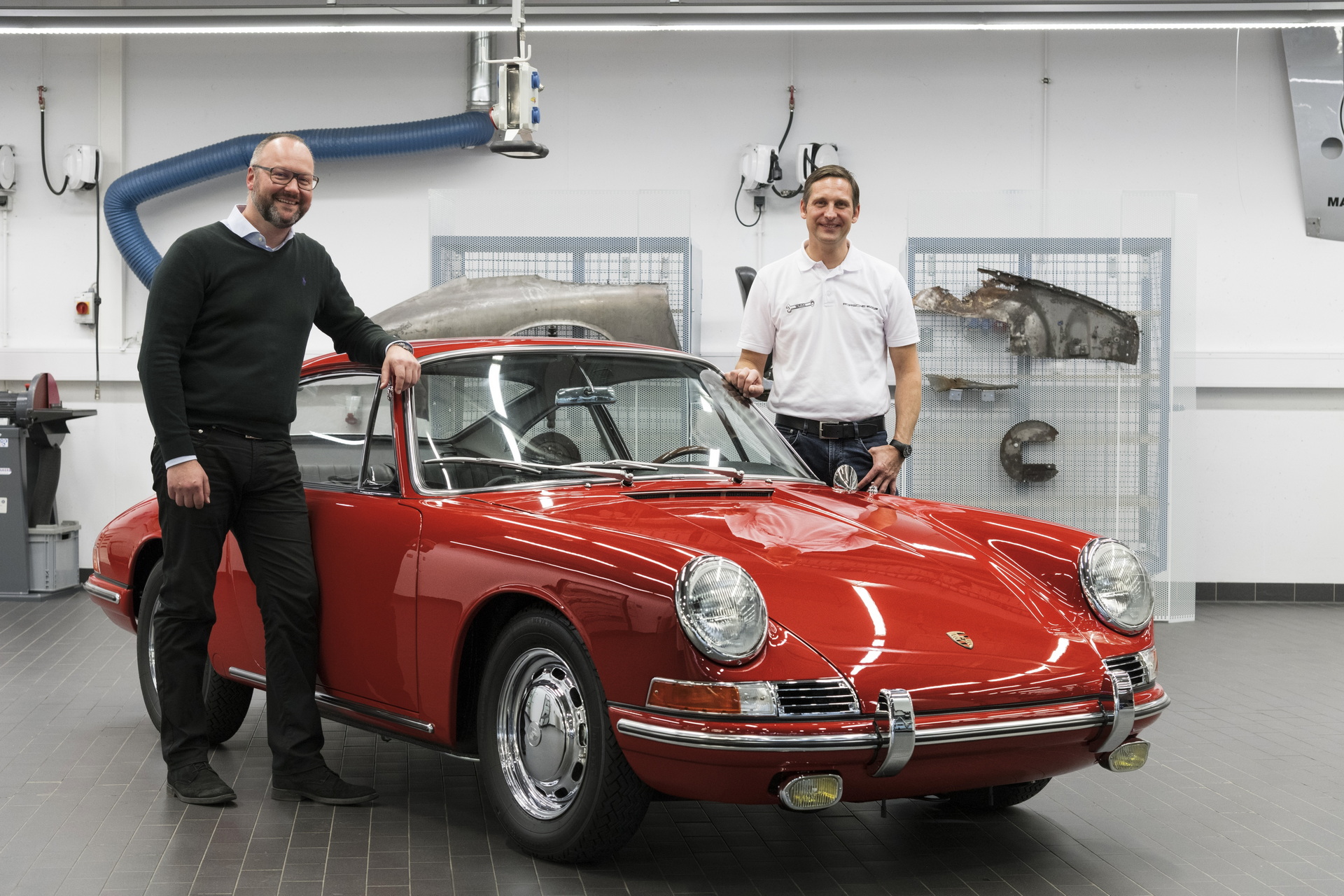A plant in northern Patagonia intended to make eFuel that can substitute gas in internal combustion engines has started construction today. The plant, backed by Porsche, Siemens Energy, and others, could reduce CO2 emissions of combustion engines by as much as 90 percent, the automaker claims.
The pilot plant is being built north of Puntas Arenas in Chile. Set to start producing eFuel in 2022, it’s expected to make around 130,000 liters (34,342 US gallons) that year. Furthermore, it is expected to produce around 55 million liters (14.5 million gallons) by 2024 and 550 million liters (145 million gallons) by 2026.
To do that, the plant will use green wind energy to power electrolyzers that split water into hydrogen and oxygen. The hydrogen will then be combined with CO2 filtered out from the air to produce synthetic methanol that can be converted into eFuel.
Read Also: Porsche Thinks Its Synthetic Fuel Could Be As Green As Electric Propulsion
Thanks to the green energy being used to power it, Porsche says that the plant is nearly emissions-free. The brand plans to use the fuel, at first, to power its Porsche Mobil 1 Supercup race cars from 2022.
“Porsche was founded with pioneering spirit,” said Michael Steiner, head of R&D at Porsche. “That’s what drives us, we thrive on innovation. We also see ourselves as pioneers when it comes to renewable fuels, and we want to drive development forward.”
Although Porsche maintains that it is committed to electric power, eFuel could be crucial to help keep the historic company’s classic cars on the road. The company says that 70 percent of all the cars it has ever built are still on the road. Its most recognizable model, the 911, could also depend on eFuel, since Porsche has previously said that it would be its last model to get an electric powertrain – if at all.
Nevertheless, some aren’t convinced by a wider rollout of eFuels. A study published in the journal Nature Climate Change in May argued that since hydrogen and eFuels need a great amount of power to be made, they are risky technologies, environmentally speaking.
“We are currently far from 100% renewable electricity,” Romain Sacchi, a member of the study team, told The Guardian at the time. “If produced with the current electricity mixes [in Europe], hydrogen-based fuels would increase – not decrease – greenhouse gas emissions, [compared with] using fossil fuels.”










